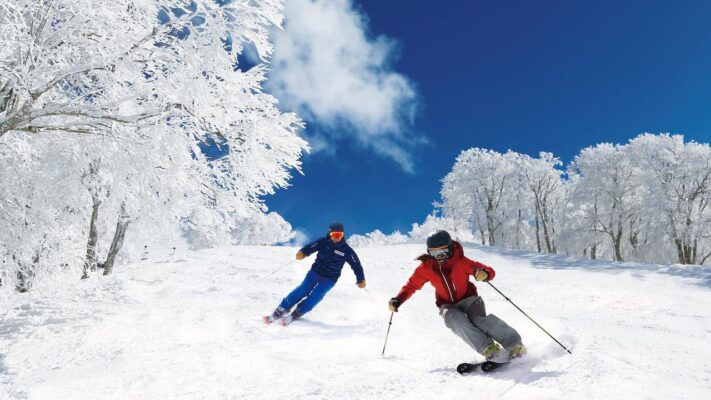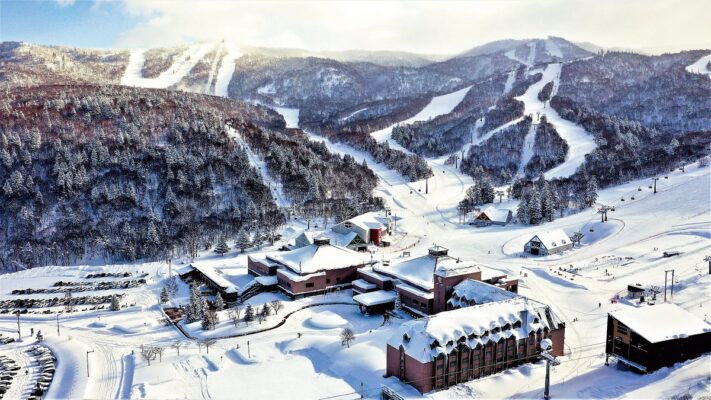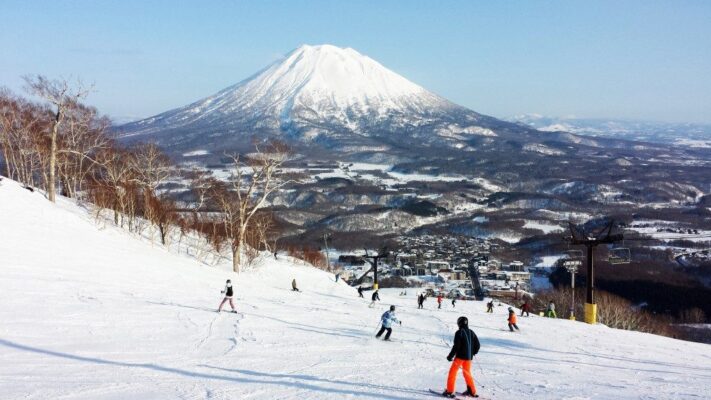Last Christmas, I decided to treat my skiing enthusiast father to a memorable vacation in Japan, assuming that December was the prime time for hitting the slopes. Little did I know that the Land of the Rising Sun offers more than just a winter wonderland during the holiday season. Intrigued by the locals’ suggestions, I extended our stay and delved into the nuances of Japan’s ski season.
Join me as we explore the best time to ski in Japan, debunking the misconception that December is the sole gateway to this skiing paradise. Ready to uncover the hidden gems of Japanese skiing? Let’s dive in.
Related posts:
- Things to pack for Japan: Essential items for your checklist
- The 10 best things to do in Japan with kids
- Cheapest place to live in Japan: Explore the most affordable cities
- Things that are cheaper in Japan: Surprisingly affordable finds!
When is the best time to ski in Japan?
The best time to ski in Japan is generally during the winter months, specifically from December to February. During this period, Japan experiences cold temperatures and receives significant snowfall, creating optimal conditions for skiing.
Here is a breakdown of the ski seasons in Japan:
Early season (December)

During the early season in December, ski enthusiasts can kick off their winter adventures as resorts open their doors. While natural snowfall may not have reached its zenith, many ski resorts employ artificial snowmaking technologies to establish a solid base for optimal skiing conditions. This period presents a unique opportunity for winter sports enthusiasts, offering favorable factors such as less crowded slopes, shorter lift lines, and budget-friendly prices.
The early season is particularly ideal for families looking to enjoy a skiing getaway without the hustle and bustle associated with peak times. It is worth noting that some resorts might not be fully operational during this time, but the advantages of good snow conditions, affordability, and a tranquil mountain atmosphere make it an appealing option for those seeking a more relaxed and cost-effective skiing experience.
Peak season (January to February)
The prime time for skiing in Japan occurs during January, aptly nicknamed “Japanuary” by enthusiasts. This period features the highest snowfall, with ski resorts operating at full capacity. The month is renowned for its consistent and heavy snowfall, resulting in the deepest and lightest powder conditions.
However, the popularity of “Japanuary” comes with its trade-offs, including larger crowds and higher prices. Winter sports enthusiasts flock to experience the unparalleled powder snow and take advantage of the colder temperatures that contribute to the exceptional quality of the snow.
Despite the increased demand and costs, the allure of pristine powder and the overall skiing experience during this peak season make it a must-visit period for those seeking an unforgettable winter adventure in Japan.
Mid-season (Late February to March)

In February, the snow conditions persist as favorable, although the latter part of the month and March may witness a slight reduction in snowfall. Nevertheless, numerous resorts continue to provide enjoyable skiing conditions during this period. Despite the potential decrease in snowfall, skiing enthusiasts can still expect fantastic snow conditions and excellent terrain.
Additionally, this time of the season may bring more sunshine, enhancing the overall skiing experience. Furthermore, travelers can take advantage of potentially lower costs compared to the peak January period, making it a more budget-friendly option for those seeking a balance between good snow conditions, pleasant weather, and cost considerations. February and March offer a wonderful window for skiing in Japan with a mix of reliable snow and the possibility of more affordable and sunnier days on the slopes.
Late season (April)
As the ski season approaches its conclusion, usually in April, temperatures begin to rise, and the snow starts to melt. While some resorts may close their doors during this transitional period, higher-altitude resorts or those with a northern exposure often maintain decent skiing conditions. Spring skiing in April offers enthusiasts the opportunity to enjoy warmer temperatures, longer days, abundant sunshine, and the added benefit of fewer crowds on the slopes.
Opting for spring skiing in April can be the most budget-friendly choice, although it’s essential to note that the snow quality may be lower, particularly at lower elevations. Despite potential variations in snow conditions, the allure of a more relaxed atmosphere, milder weather, and cost-effectiveness make April a viable and enjoyable option for those seeking a unique skiing experience in Japan.
More tips for you:
Hokkaido, the northernmost island of Japan, distinguishes itself with colder temperatures and more substantial snowfall compared to Honshu. The island’s winter conditions make it a prime destination for winter sports enthusiasts seeking an extended and snowy ski season.
The elevation of ski resorts plays a crucial role in determining the snow season and quality. Higher resorts generally enjoy longer snow seasons and more consistent snow conditions, providing optimal experiences for skiers and snowboarders.
For those interested in immersing themselves in Japanese culture, planning a trip around a ski festival can enhance the overall experience. Consider attending events like the Hakuba Happo-One Winter Carnival in February, which not only offers exciting winter sports but also showcases the rich cultural tapestry of Japan, adding an extra layer of enjoyment to your skiing adventure.
FAQs
1. What is the best month to ski in Japan?
The best month to ski in Japan is typically from December to February. During this period, the country experiences peak winter conditions, with ample snowfall and cold temperatures, creating ideal skiing conditions.
Resorts in popular ski destinations like Hokkaido and Nagano attract enthusiasts with well-groomed slopes and stunning powder snow. While December marks the start of the season, January and February offer the most consistent and reliable snow cover, making them optimal months for a memorable skiing experience in Japan.
2. Is it expensive to ski in Japan?

Skiing in Japan can vary in cost depending on factors such as the resort, accommodation, and equipment rental. Generally, compared to some Western destinations, skiing in Japan is often considered more affordable.
Lift ticket prices are reasonable, and there are budget-friendly accommodations available. Additionally, dining and transportation costs can be relatively lower. However, high-end resorts and certain popular areas may have higher expenses.
3. Is March too late to ski in Japan?
March is considered late in the ski season in Japan, and the conditions can vary depending on the specific location and the year. In Hokkaido, which tends to have colder temperatures, ski resorts may still offer good conditions in early March. However, in lower-altitude areas like Honshu, the snow quality may start to decline, and some resorts may close by mid to late March.
If you plan to ski in Japan in March, it’s advisable to choose resorts at higher elevations and those known for retaining snow later into the season. Additionally, it’s essential to check the snow conditions and resort operating schedules before planning your trip.
Wrap up
As we conclude this exploration of the best times to ski in Japan, it is evident that the Land of the Rising Sun offers a skiing paradise beyond the initial assumptions. From the festive charm of December to the unexpected delights of later months, Japan’s slopes beckon enthusiasts throughout the winter season.
Whether you seek the vibrant holiday atmosphere or prefer the quieter post-New Year’s tranquility, Japan’s diverse ski options cater to every preference. So, pack your gear, embrace the powdery wonders, and carve unforgettable memories on the slopes of this enchanting winter destination.
Finally, don’t forget to leave a comment to share your experience. Thank you for reading!
















